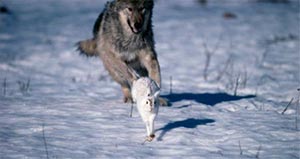Why Your Dog May Eat Grass Phoenix, AZ
Health Reasons

Nausea relief, or to induce vomiting, has been a highly suspected reason as to why dogs ingest grass; however, most studies have found that less than 25% of dogs will actually vomit after eating grass. This is most likely because dogs will occasionally eat grass in attempts to settle their already upset stomach. This can cause vomiting in dogs' whose stomachs are already upset due to an underlying cause.
If your dog is typically not one to eat grass, but then all of a sudden starts, it is important to rule out serious underlying illnesses for your dog's upset, as some dogs with Cushing's disease, many types of cancers, esophageal disorders and food allergies can exhibit sudden grass eating.
Nausea may not, however, be the only reason. It is sometimes suspected that dogs may eat grass due to its stimulating effects on the gums and esophagus. It is thought that some dogs may eat grass to relieve an irritated or scratchy throat as the blades of grass may "itch from inside" as it moves down to the stomach. Dogs with gingivitis or periodontal disease may be looking to provide some relief or stimulation of their gums/mouths by chewing on the blades of grass.
Texture, Taste or Deficiency

Some researchers believe that dogs may love gobbling down grass simply because they enjoy the taste and texture of the common vegetation.
Another commonly speculated reason is due to a nutritional deficiency in their everyday diet. This may cause some dogs to search elsewhere for the minerals or vitamins, such as fiber, that they could be missing.
Vitamin and mineral deficiencies can be symptoms of a variety of diseases that require further investigation by your Veterinarian.
If your dog routinely eats grass, it could be simply because he enjoys it; however, if a vitamin deficiency is suspected, your Veterinarian may discuss ruling out other causes and possibly adding a nutritional supplement, such as Pet Tinic or SP Whole Body Support, into their daily diet.
Instinctual Behavior

Although evolution has taken dogs from the wild to domestication, many of their natural instincts, needs, and behaviors remain instilled in their genetic makeup.
Our dogs' wild ancestors were known to feast on the stomach, intestines and other internal organs of their prey first. Their prey being predominantly herbivores, the stomach contents often consisted of grass and other leafy forage.
Numerous researchers speculate that the propensity for eating grass may be built in the heredity of our furry companions.
Boredom or Anxiety

A possibility, for many dogs routinely eating grass, could be as a result of boredom, anxiety or lack of appropriate chew toys.
Dogs tend to pick up many unusual habits out of boredom and naturally have a need to chew. With a yard full of grass, and nothing more to do, why not eat the grass? Proper exercise and activity are important for the overall health and well-being of your pet, both mentally and physically.
Your Veterinarian can discuss with you causes of, and ways to reduce, anxiety and can also recommend a reputable dog trainer to work with you and your pet. Exercise and training are great ways to keep your dog happy and engaged!
Tags: Reasons Why My Dog Eats Grass Phoenix, Phoenix Dog Eats Grass, Why Does My Dog Eat Grass, Phoenix Dogs Eat Grass
